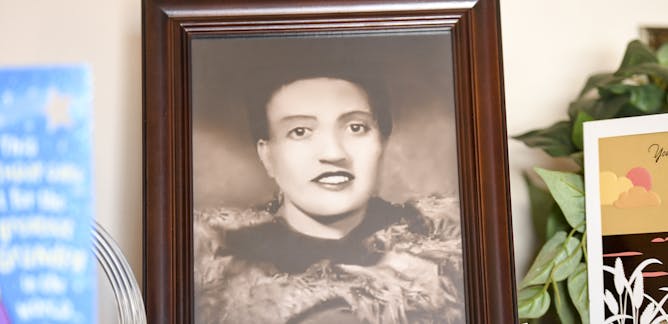|
Of the nearly 80 federal and state charges that former President Donald Trump faces as he campaigns for the White House again, one of the least well known harks back to the darks days of a racially divided America after the end of the Civil War.
Known as the Ku Klux Klan Acts, they are officially called the Enforcement Acts because they empowered the federal government to enforce the laws that freed enslaved people and guaranteed equal protection and the right to vote.
As a historian who studies democracy and the American South, Joseph Patrick Kelly of the College of Charleston believes the 1870s have something to teach us about the fourth count in the Jan. 6 case against Trump.
And that is not necessarily good news for Trump.
“In the 20th century,” Kelly explains, “the Supreme Court has ruled that all sorts of election infringements violate the Enforcement Acts, including stuffing ballot boxes and bribing voters. A suspect doesn’t have to commit violence against Black voters to violate the law.”
|

Special counsel Jack Smith delivers remarks on an indictment against former U.S. President Donald Trump on Aug. 1, 2023.
Drew Angerer/Getty Images
Joseph Patrick Kelly, College of Charleston
One of the charges against Donald Trump dates back to the 1870s and was designed to give the federal government the power to ensure states held free and fair elections.
|

One of Donald Trump’s PACs has nearly dried up its resources by paying his legal fees.
iStock/Getty Images Plus
Richard Briffault, Columbia University
There are different kinds of PACs, but it is not clear if Trump’s use of them to pay his large legal fees violates election or campaign finance laws.
|

If people were dropped into a new situation tomorrow, how would they choose to govern themselves?
Just_Super/iStock / Getty Images Plus via Getty Images
Bruce Schneier, Harvard Kennedy School
The modern representative democracy was the best form of government mid-18th-century technology could invent. The 21st century is a different place scientifically, technically and socially.
|
|
|

Deion Scott Hawkins, Emerson College
Medical exploitation is an often overlooked part of Black history and partly explains the mistrust that members of the Black community have for the medical industry.
| |

Christopher Robertson, Boston University; Russell M. Gold, University of Alabama
While Trump has received early warnings ahead of indictments and detailed explanations behind the charges, criminal defendants typically get a bare-bones explanation.
|

Alexander N. Taylor, George Mason University
The drive to remove Confederate monuments links those monuments to modern racism. An economic historian shows that the intent and effect of those monuments from inception was to perpetuate racism.
| |

Daniel E Bergan, Michigan State University
You can affect how legislators vote, but you can’t just fire off a nasty email and expect them to listen to you.
|
|
|
|
|
-
Kristina M. Lee, University of South Dakota
Distinct from civil disobedience, this legal strategy demands complete compliance with the law – even when there are loopholes that the laws’ creators didn’t intend.
-
Joshua Holzer, Westminster College
Kamala Harris is on track to be one of the most influential vice presidents in history. This says more about the Senate than the amount of power the vice president actually wields.
-
Joelle Abramowitz, University of Michigan
The law changed older adults’ caregiving behavior because their children became more able to take paid time off work to care for their own newborns.
-
Hakan Yilmazkuday, Florida International University
The rating agency demoted the US government’s creditworthiness to AA+, its second-highest ranking, on Aug. 1, 2023.
|
|